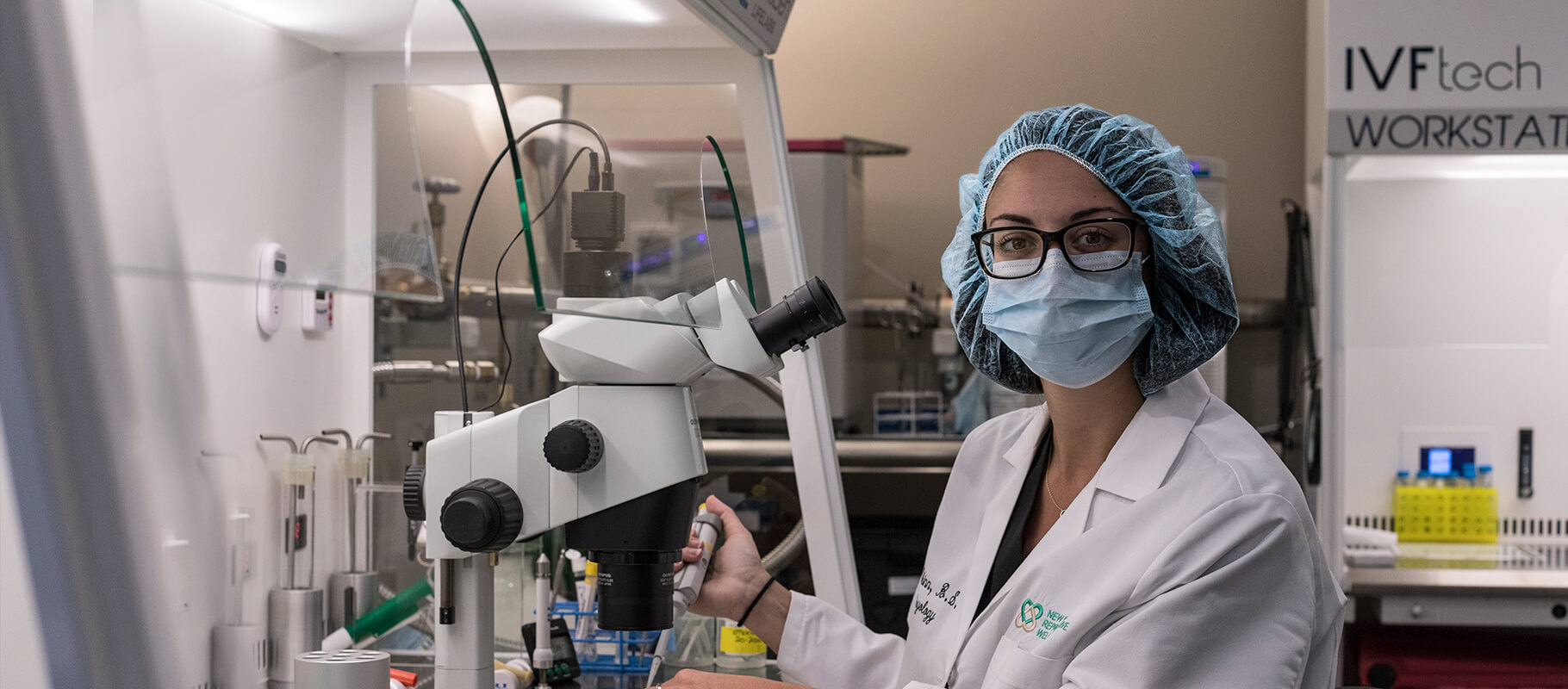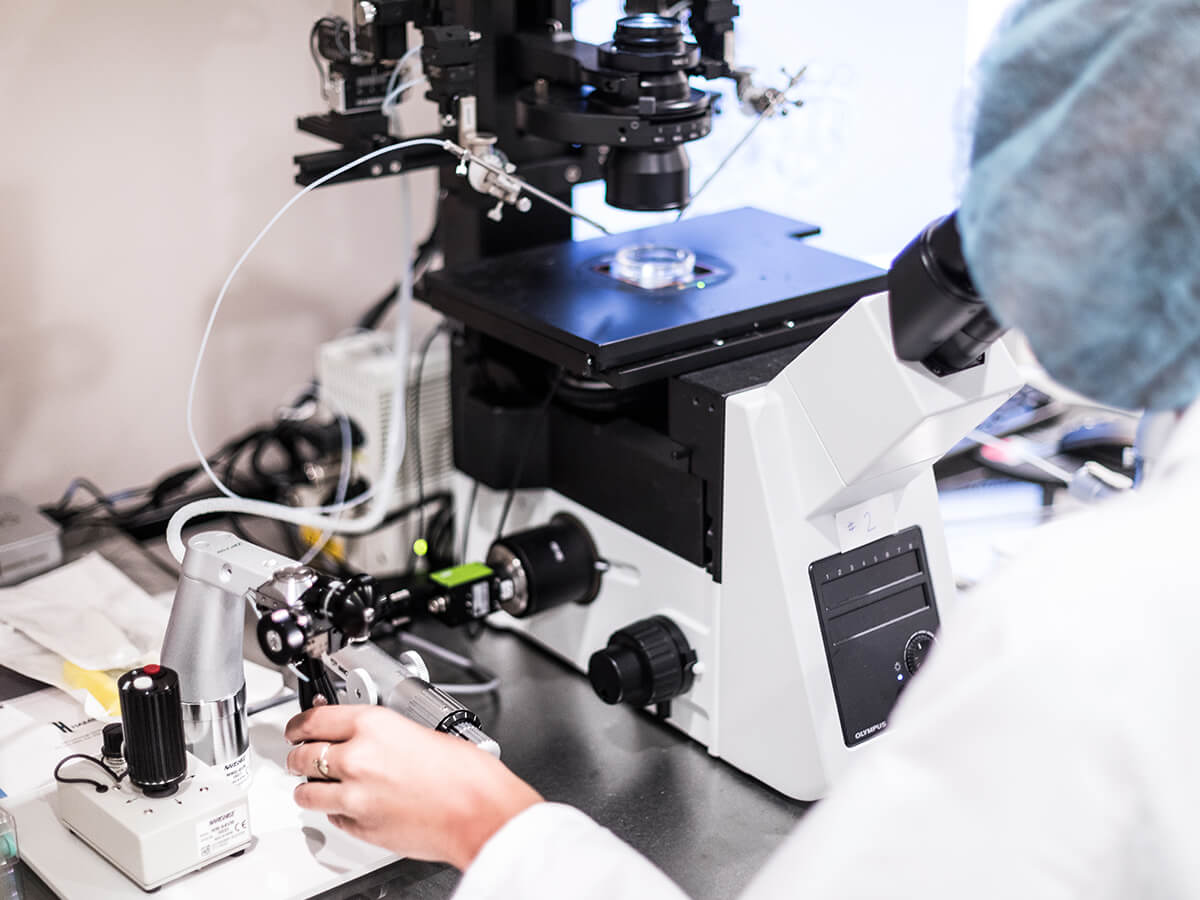Do I need IVF?
At New York Reproductive Wellness, your treatment plan is personalized based on your unique fertility needs. Your physician will complete a full fertility workup during your initial consultation that will determine your plan of care. For many women of advanced maternal age or with a diagnosis of unexplained infertility, endometriosis, blacked fallopian tubes, pelvic scarring, or a male partner with severe male factor infertility, IVF is often the first option your physician will recommend as treatment.
IVF Process Explained
During the IVF process mature eggs are retrieved from a woman’s ovaries and fertilized by sperm in an embryology laboratory. The embryos then develop in our world-class embryology laboratory until they reach the blastocyst stage (5-6 days after fertilization when it has approximately 100 cells) or cleaved embryo stage (3 days after fertilization when it has approximately 6-10 cells). It is at this point when the embryo/s are transferred to the uterus.









